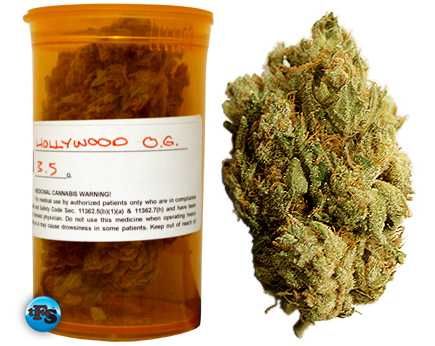
Colorado Med Pot Regs
Denver moves to legitimize, test and regulate medical cannabis 112810

Ha ha ha! From HERE
One of the common complaints “real doctors” have against medical cannabis is that there is no way to know for sure what it is. When the doctor prescribes a deadly arthritis drug, he or she at least knows that a mega-pharmaceutical corporation with lawyers is standing behind the product; it is what the label says it is.

From HERE
With pot, who knows what’s in it? Was it grown in a vat of chemicals, treated with artificial plant hormones, sprinkled with rat poison and then mixed with weeds from the side of the road? There’s often not an easy way to be certain.*
Consumers have the same questions about cannabis as they do about vegetables or beef. How was it raised? How much water was pumped into it before sale? If it says “organic” what does that really mean? Was it handled properly to prevent contamination or mold?
They also have the key question that alcohol and aspirin users have: how strong is the product? What are its constituents? What symptoms or conditions does it treat, how often should it be used?
Many existing cannabis users have resolved these issues, often by purchasing from a known source and by inspecting the product before purchase. Some “old school” users hold cannabis in an almost sacred esteem, and don’t want to believe their weed can be anything but what it seems to be, but they often grow their own or buy from cronies they trust. It’s like having unprotected sex: if you know and trust your partner, you’ll probably be safe, but if you’re getting it off the street, you’re taking your chances.
But as cannabis moves into the mainstream, it is going to have to become “mainstreamed” meaning it will have to look and be purchased like the other consumer goods in stores and pharmacies.
Colorado is moving forward to answer those basic consumer questions. They are preparing to apply the same technologies used for tobacco, alcohol, and over-the-counter medications. They are using Colorado laboratories and perfecting the techniques of analyzing and qualifying cannabis so purchasers can buy with confidence.
All this standardization is likely to make cannabis more attractive to retailers, too, meaning the “mom and pop” medical pot store will likely disappear, and you’ll get your cannabis at a Walmart pharmacy.
It might have been California to first appropriately regulate cannabis as a legitimate consumer product; now the companies in Denver will have a lock on the technology, and they’ll be “cloned” to California when testing here becomes an issue (probably 2012).
The process marches on toward regulating and taxing cannabis; some march with the process, and some stand on the sidewalk and watch.
See Denver’s effort HERE
*However, a long time cannabis user, by looking at the bud, smelling it carefully, cracking a stem and lighting a small amount can identify pesticides, mold, “chembud” or pot grown strictly on chemicals, and sun grown cannabis.

Ha ha ha! From HERE
One of the common complaints “real doctors” have against medical cannabis is that there is no way to know for sure what it is. When the doctor prescribes a deadly arthritis drug, he or she at least knows that a mega-pharmaceutical corporation with lawyers is standing behind the product; it is what the label says it is.

From HERE
With pot, who knows what’s in it? Was it grown in a vat of chemicals, treated with artificial plant hormones, sprinkled with rat poison and then mixed with weeds from the side of the road? There’s often not an easy way to be certain.*
Consumers have the same questions about cannabis as they do about vegetables or beef. How was it raised? How much water was pumped into it before sale? If it says “organic” what does that really mean? Was it handled properly to prevent contamination or mold?
They also have the key question that alcohol and aspirin users have: how strong is the product? What are its constituents? What symptoms or conditions does it treat, how often should it be used?
Many existing cannabis users have resolved these issues, often by purchasing from a known source and by inspecting the product before purchase. Some “old school” users hold cannabis in an almost sacred esteem, and don’t want to believe their weed can be anything but what it seems to be, but they often grow their own or buy from cronies they trust. It’s like having unprotected sex: if you know and trust your partner, you’ll probably be safe, but if you’re getting it off the street, you’re taking your chances.
But as cannabis moves into the mainstream, it is going to have to become “mainstreamed” meaning it will have to look and be purchased like the other consumer goods in stores and pharmacies.
Colorado is moving forward to answer those basic consumer questions. They are preparing to apply the same technologies used for tobacco, alcohol, and over-the-counter medications. They are using Colorado laboratories and perfecting the techniques of analyzing and qualifying cannabis so purchasers can buy with confidence.
All this standardization is likely to make cannabis more attractive to retailers, too, meaning the “mom and pop” medical pot store will likely disappear, and you’ll get your cannabis at a Walmart pharmacy.
It might have been California to first appropriately regulate cannabis as a legitimate consumer product; now the companies in Denver will have a lock on the technology, and they’ll be “cloned” to California when testing here becomes an issue (probably 2012).
The process marches on toward regulating and taxing cannabis; some march with the process, and some stand on the sidewalk and watch.
See Denver’s effort HERE
*However, a long time cannabis user, by looking at the bud, smelling it carefully, cracking a stem and lighting a small amount can identify pesticides, mold, “chembud” or pot grown strictly on chemicals, and sun grown cannabis.
